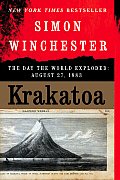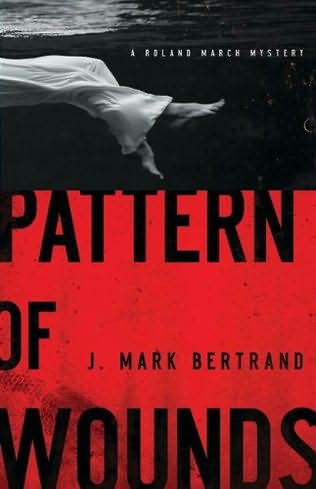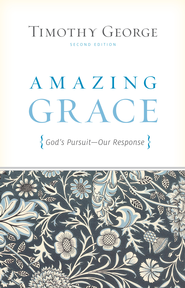I had a chance to complete a number of books during my 2-week trip to Indonesia. Limited access to internet and TV channels in an unfamiliar language will give you that opportunity.
 Before leaving for Indonesia, I went to the public library to check out Krakatoa: The Day the World Exploded: August 27, 1883 by Simon Winchester. Krakatoa is a volcano in between Java and Sumatra, so it seemed a fitting book for my trip. Fascinating account, not only for describing the actual eruption but also for fitting the event into the cultural context of the late 19th century. You should get it in the audiobook version, as I did. The author’s entertaining storytelling is made all the more enjoyable by listening to him read his book to you.
Before leaving for Indonesia, I went to the public library to check out Krakatoa: The Day the World Exploded: August 27, 1883 by Simon Winchester. Krakatoa is a volcano in between Java and Sumatra, so it seemed a fitting book for my trip. Fascinating account, not only for describing the actual eruption but also for fitting the event into the cultural context of the late 19th century. You should get it in the audiobook version, as I did. The author’s entertaining storytelling is made all the more enjoyable by listening to him read his book to you.

J. Mark Bertrand has a hit on his hands with his Roland March mystery series. I got through all three books in the series: Back on Murder, Pattern of Wounds, and Nothing to Hide. Bertrand’s homicide detective, Roland March, is not a Christian but is surrounded by those who are, and so the conversations on faith that he occasionally gets into come across as quite natural. In other words, if “Christian fiction” has the reputation of being a thinly veiled gospel tract, Bertrand’s storytelling breaks that mold. March’s experiences with the imperfect process of justice  on earth leaves him wondering: "If there's anything in religion I want to believe,” he says to himself in one of the books, “it's that the dead and disembodied will rise again before the cosmic judge, that the zero-sum game will give way to the balance scales of an unblinded justice...which is more than I can do.” What made the books particularly interesting for me was their setting. March is a Houston homicide detective, and Bertrand has put his stories in lots of familiar Houston scenes for me. Even the subject of the missing persons investigation in Book
on earth leaves him wondering: "If there's anything in religion I want to believe,” he says to himself in one of the books, “it's that the dead and disembodied will rise again before the cosmic judge, that the zero-sum game will give way to the balance scales of an unblinded justice...which is more than I can do.” What made the books particularly interesting for me was their setting. March is a Houston homicide detective, and Bertrand has put his stories in lots of familiar Houston scenes for me. Even the subject of the missing persons investigation in Book  One is a student at my old high school, Klein, and she lived in Greenwood Forest, my wife’s family’s subdivision, and was abducted at Willowbrook Mall, where most of our shopping still takes place on visits back home.
One is a student at my old high school, Klein, and she lived in Greenwood Forest, my wife’s family’s subdivision, and was abducted at Willowbrook Mall, where most of our shopping still takes place on visits back home.
 In The Prague Cemetery Umberto Eco invents a story to explain history’s most notorious invention, “The Protocols of the Elders of Zion,” a forgery that has been used to fuel anti-Semitism down to our own day. The book was tiresome and I was glad to be done with it.
In The Prague Cemetery Umberto Eco invents a story to explain history’s most notorious invention, “The Protocols of the Elders of Zion,” a forgery that has been used to fuel anti-Semitism down to our own day. The book was tiresome and I was glad to be done with it.
 I enjoyed Bradley Wright’s Christians Are Hate-Filled Hypocrites...and Other Lies You've Been Told: A Sociologist Shatters Myths From the Secular and Christian Media. He wants us to take a second and skeptical look at the fear-mongers who, with poor use of statistics, announce the soon-coming collapse of Christianity in the West. Particularly he skewers my least-favorite research firm, the Barna Group, but he finds plenty of additional examples of those who mishandle data. He does this with just the right amount of humor (For example, on the way to rejecting the Barna claim that Christians really are no different than the general population when it comes to sexual misbehavior, he says, “Let me interject that there is a crucial difference between extramarital sex and extra marital sex.” I’ll have to use that one in a sermon sometime.)
I enjoyed Bradley Wright’s Christians Are Hate-Filled Hypocrites...and Other Lies You've Been Told: A Sociologist Shatters Myths From the Secular and Christian Media. He wants us to take a second and skeptical look at the fear-mongers who, with poor use of statistics, announce the soon-coming collapse of Christianity in the West. Particularly he skewers my least-favorite research firm, the Barna Group, but he finds plenty of additional examples of those who mishandle data. He does this with just the right amount of humor (For example, on the way to rejecting the Barna claim that Christians really are no different than the general population when it comes to sexual misbehavior, he says, “Let me interject that there is a crucial difference between extramarital sex and extra marital sex.” I’ll have to use that one in a sermon sometime.)
 Finally, pick up a copy of Timothy George’s Amazing Grace: God's Pursuit, Our Response. This is a re-release of a book that served as the annual Doctrine Study for Southern Baptists about 10 years ago. It is an irenic look at the basic points of Calvinism and the role of Calvinism in Baptist life. It is a quick read, and it will give you a deeper appreciation for an issue that often flares up in Baptist circles today.
Finally, pick up a copy of Timothy George’s Amazing Grace: God's Pursuit, Our Response. This is a re-release of a book that served as the annual Doctrine Study for Southern Baptists about 10 years ago. It is an irenic look at the basic points of Calvinism and the role of Calvinism in Baptist life. It is a quick read, and it will give you a deeper appreciation for an issue that often flares up in Baptist circles today.
No comments:
Post a Comment